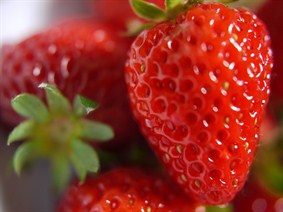If you’re looking for ways to improve your health, reducing the amount of meat you eat may prove to be a simple change with big benefits.

A study from the National Cancer Institute that tracked 500,000 people over 10 years found a striking result: individuals who ate at least four ounces of red meat every day were 30% more likely to die – of any cause –than those who ate less meat. The study also concluded that participants who ate more poultry and fish, instead of red meat or processed meats, had a decreased risk of death.
There have been numerous other studies that have looked into the health benefits of reducing meat consumption. Some of the most notable benefits that researchers have found include:
- Reduced risk of heart disease
- Reduced risk of cancer
- Reduced risk of diabetes
- Lower blood pressure
- Increased energy
- Less weight gain in vegetarians who eat the same number of calories as meat-eaters
What to Eat On a Reduced-Meat Diet
It may be intimidating to reduce your meat-intake, especially when your loved ones don’t want to join you in your dietary change. The great news is that it is incredibly easy – and delicious – to include meatless meals into your diet.
A great way to ease into meatless meals is to consider whether there are any meals you already love that can be enjoyed without meat. Many sandwiches, salads, pizzas or pasta dishes can be easily adapted to be meat-free. When I started reducing my meat intake, I swapped out chicken from my favorite pasta dish — fettuccine alfredo — and added in broccoli. This allowed my family to still eat the dish with meat, while I was easily able to adapt it to fit my dietary needs.
Getting Enough Protein
One of the biggest concerns people have about reducing or removing meat from their diet is how they will be able to get enough protein. If you’re worried about getting enough protein in your diet, it’s great to know that reducing your meat intake is not likely to prevent you from meeting your nutritional needs! In fact, the need for protein is often overstated; while we certainly need to be consuming it, we don’t need nearly as much as you may think.
There are numerous non-meat sources to get protein from – including eggs, beans, nuts and soy products. Because you likely already eat some of these foods, getting your daily protein needs met won’t be too much of a stretch! If you’d like some more ideas for protein-rich foods to add to your daily menu, take a look at our suggestions of beans you should incorporate into your diet.
Have you considered reducing the amount of meat you eat? Do you have any delicious meat-free recipes? Share your thoughts with us in the comments!
Brittney Lane
Marketing & Communications
Chicago Skilled Nursing
Chicago Senior Living
